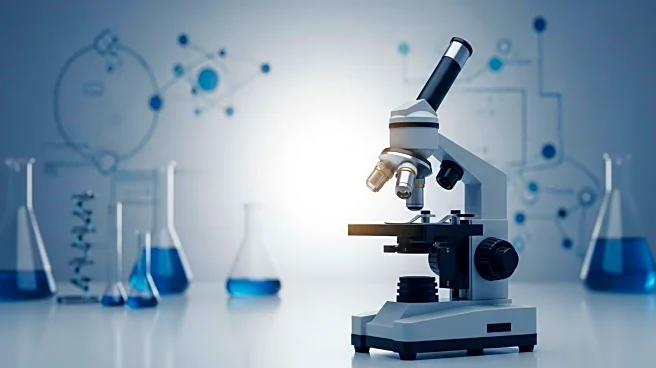What's Happening?
The Baltic region, particularly Lithuania, is rapidly establishing itself as a significant force in the global life sciences industry. Lithuania, with a population of just 2.8 million, hosts over 400 life sciences companies involved in various fields such as gene editing and mental health research. The country aims to have 5% of its GDP driven by the life sciences sector by 2030. The recent Life Sciences Baltics conference highlighted Lithuania's efforts to enhance its position on the global stage, showcasing initiatives like the Baltic Biotech HUB Action Plan. This plan, developed under the EU's BioConnect project, seeks to create a more integrated life sciences ecosystem across the Baltics.
Why It's Important?
The Baltic region's growing prominence in life sciences is significant for several reasons. It demonstrates the potential for smaller countries to make substantial contributions to global industries through strategic investments and collaborations. The region's focus on life sciences could lead to advancements in medical research and innovation, benefiting global health outcomes. Additionally, the development of a robust life sciences sector can drive economic growth, create jobs, and attract international investment. The Baltic region's success may serve as a model for other small countries looking to enhance their presence in high-tech industries.
What's Next?
The Baltic region is likely to continue its efforts to strengthen its life sciences sector through increased investment in research and development, infrastructure, and talent acquisition. The region may also seek to attract more international partnerships and collaborations to further its growth. As the life sciences industry evolves, the Baltic region could play a crucial role in shaping future trends and innovations. The success of initiatives like the Baltic Biotech HUB Action Plan will be critical in determining the region's long-term impact on the global life sciences landscape.
Beyond the Headlines
The rise of the Baltic region in life sciences highlights the importance of regional collaboration and strategic planning in achieving global competitiveness. The region's success underscores the value of public-private partnerships and the need for supportive regulatory environments to foster innovation. As the Baltic region continues to grow its life sciences sector, it may face challenges related to talent retention, funding, and infrastructure development. Addressing these challenges will be essential to sustaining its momentum and ensuring long-term success in the global market.










